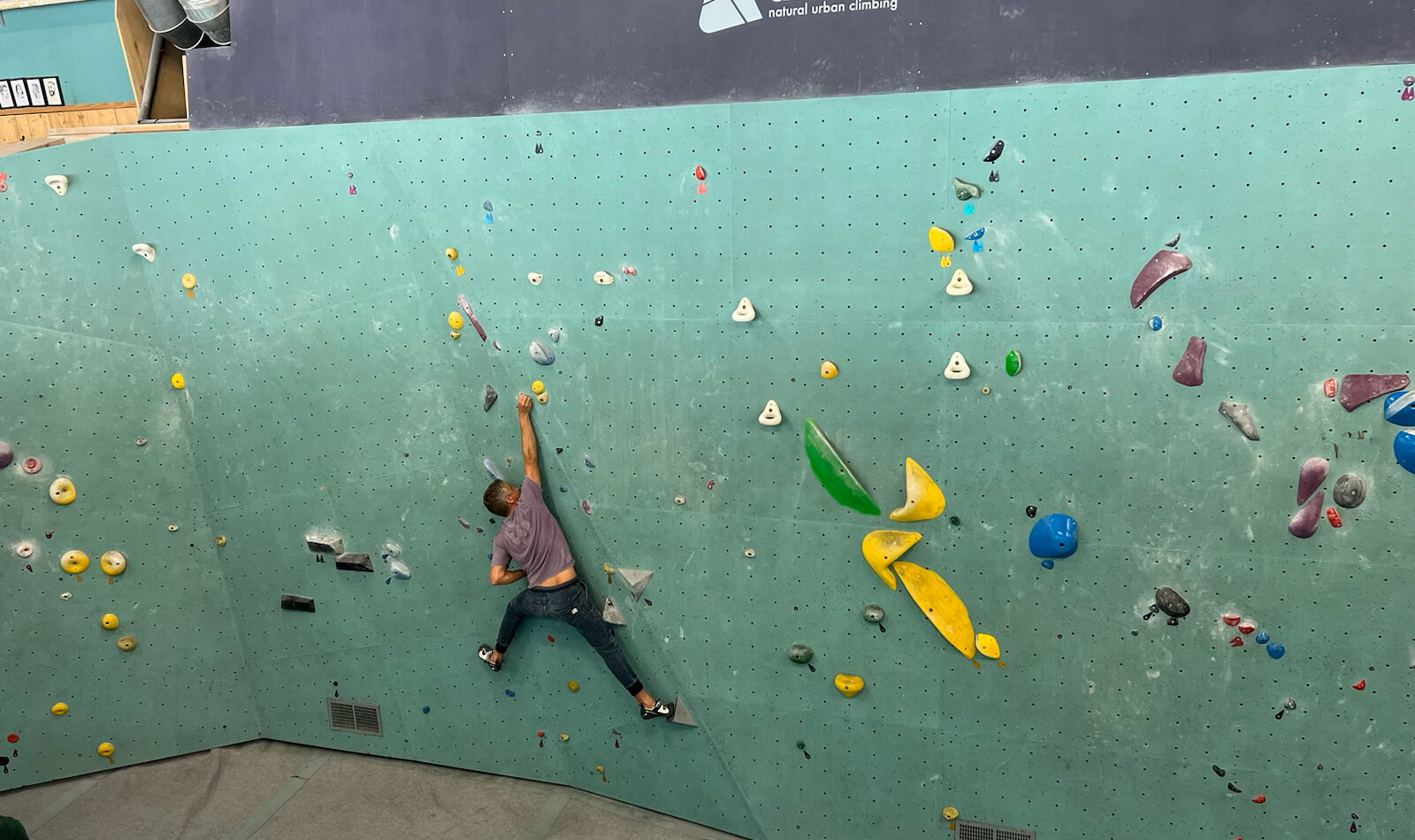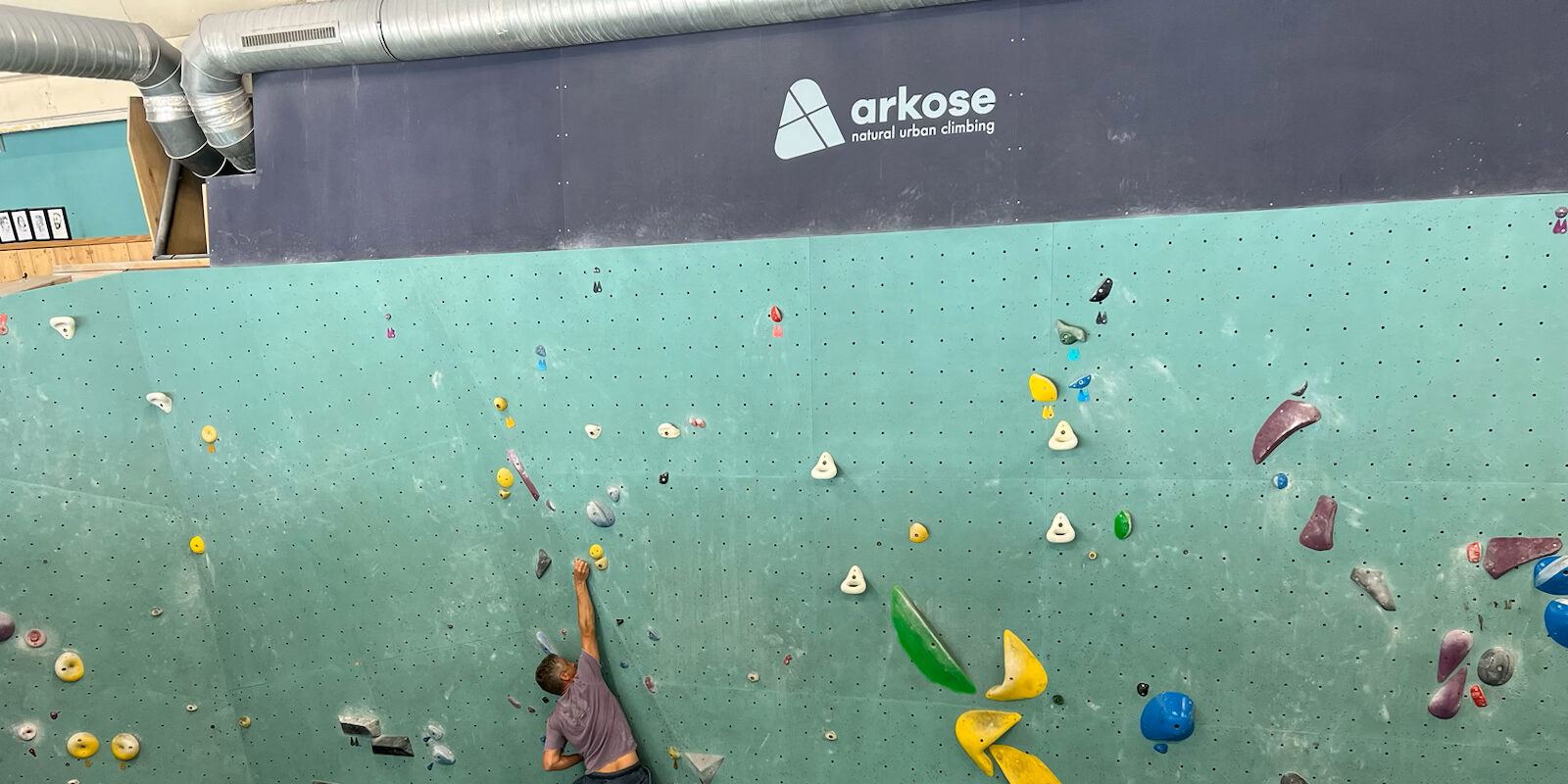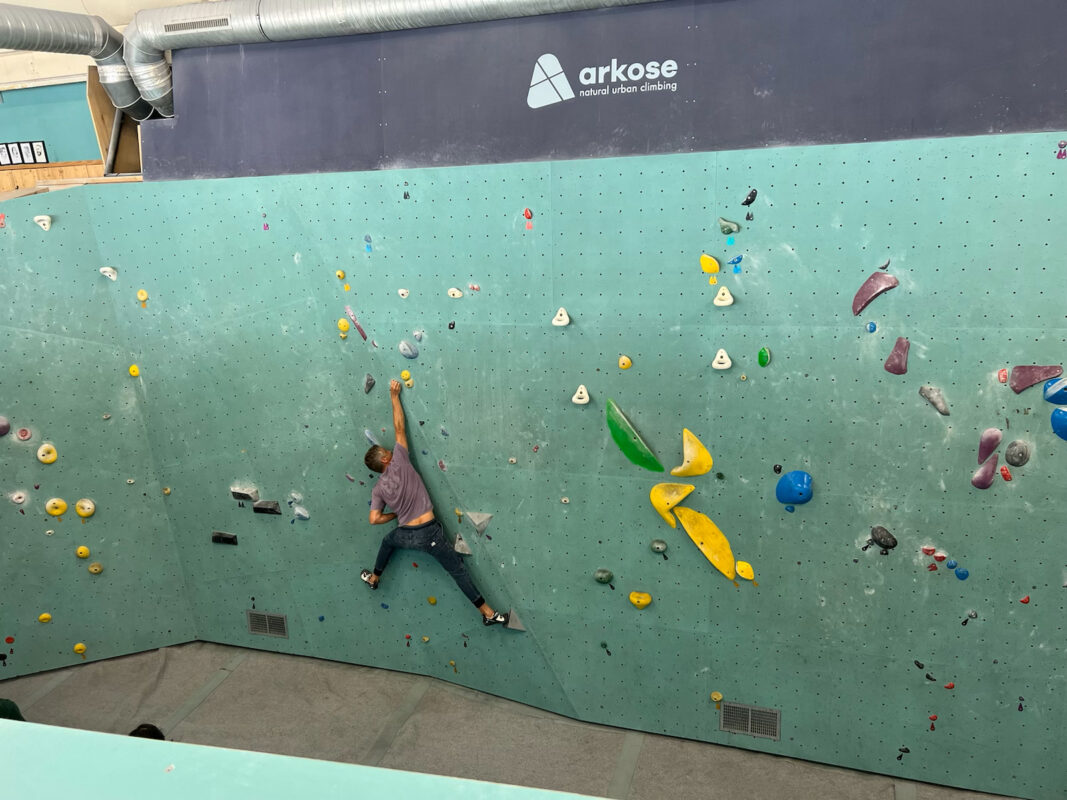
Paris — Right hand stretched out so far that only your fingers are able to grip anything. Left hand still trying to find a hold sufficient to support your body weight. Right foot lodged in a crack on your right. Left foot on a two-by-two-inch hold to your left, leaving you looking like a starfish as you search for your next move.
Rock climbing started as a pastime for daredevils seeking adventure, but it has since grown into a sport with millions of participants around the world.
“There are more than eight indoor gyms within the Paris region alone, so it has gotten quite big here,” Yaniss Belkbla, an Arkose Nation gym member, said. “I personally come about three to four times a week, it just depends on if I’m not busy.”
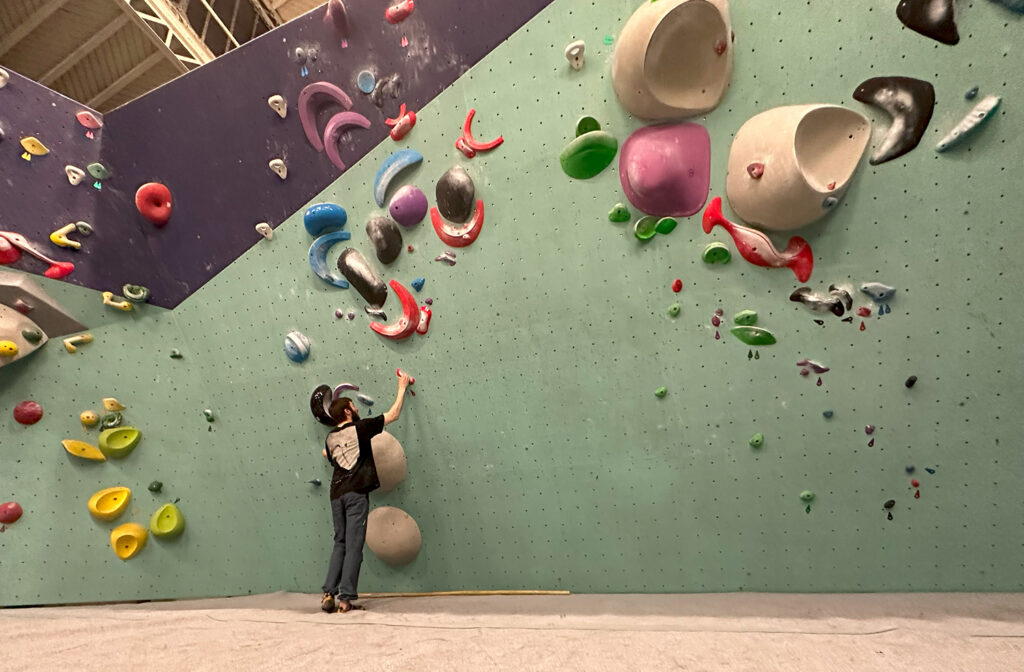
The first organized climbing competition was held in Vaulx-en-Velin, France, in 1986, and in 2020 it officially became an event, known as sport climbing, at the Olympics in Tokyo and will be included once again in the 2024 Olympics in France.
A group of 20 competitors will be tested to go through rigorous challenges that consist of speed climbing, bouldering, and lead climbing.
In the 2020 Tokyo Olympics debut, each competitor had to compete in each event for one set of medals, to emphasize a more balanced aspect of ability.
However, in the 2024 Olympics, there will be two sets of medals available by separating speed climbing from bouldering and lead climbing.
“I think it is a good idea to separate the events because climbers usually focus on one or two types of climbs and practice them until they are perfect,” Alexis Laporte Fauret, an Arkose gym member, said. “To make them show off skills they rarely practice is unfair in my opinion.”
To qualify for Olympic sports climbing, competitors would have to place in the top three of either the World Championship 2023, the Continental Qualifiers in 2023, or the Olympic Qualifier Series in 2024.
Of the 40 Olympians who qualified to participate in the event in 2020, 19 different nations were represented spanning from Japan to Slovenia. The same amount of diversity is expected in the 2024 games.
Tomoa Narasaki of Japan and Mejdi Schalck of France are favorites to win on the men’s side for bouldering. Brooke Raboutou from the U.S. is the clear favorite for the women in bouldering.
The market for rock climbing has been experiencing a shift in the last few years due to the Olympics as well as through accessible indoor rock-climbing gyms and documentaries following the lives of athletes as they climb, according to the athletes.
Arkose Nation is an indoor rock-climbing gym in the 20th Arrondissement surrounded by multiple restaurants, two parks and even an Office Depot.
“It’s so much more than a climbing gym, it’s a place where you can come to eat, study, hangout with your friends, and climb of course,” Tamazirt Smaili, an Arkose Nation representative, said.
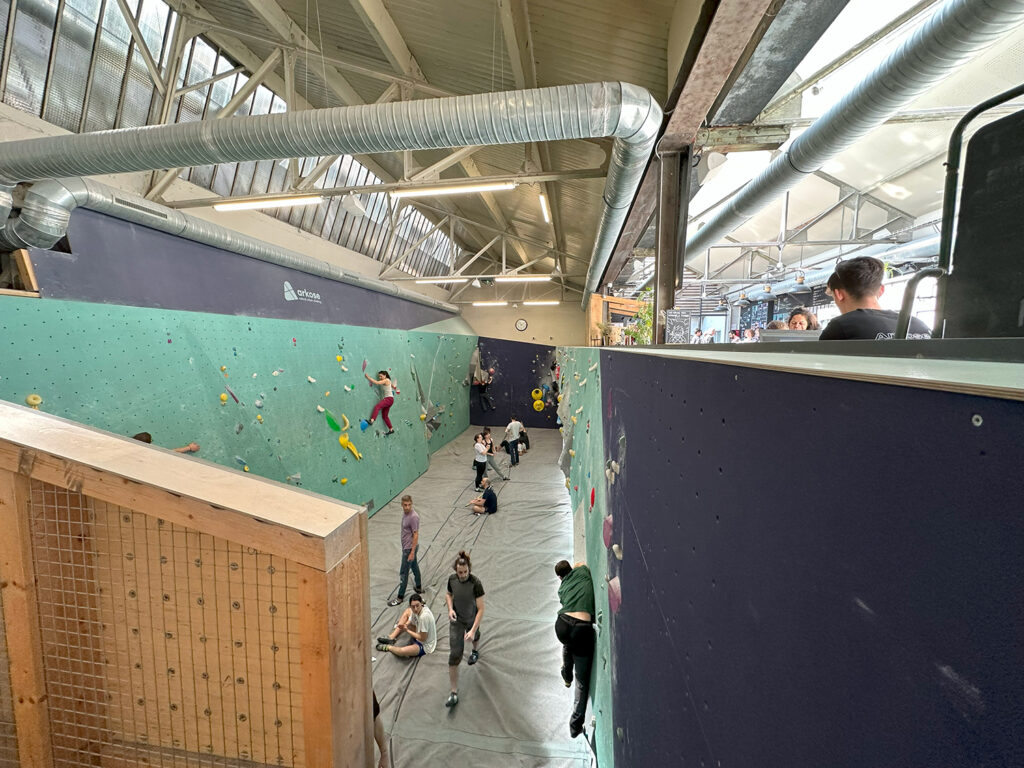
By taking the approach of offering a place of comfort outside of just climbing, Arkose is successful.
Arkose built its community through its familial feel, which in turn, encouraged climbers to suggest the gym to their friends through word of mouth.
“I found out about this place from a friend of a friend,” Fauret said. “If it wasn’t for his friend, I probably wouldn’t have found Arkose on my own.”
In France, there is already an established rock-climbing community that goes further than just professionals, including all walks of life at different levels of experience.
How does the Olympics impact a market that is already thriving?
“I think it is going to be very chaotic and messy,” Claude Girard, an Arkose Nation staff member, said. “We are already pretty busy during our happy hour, so I can only imagine it might be triple what we would get on a usual day.”
The possibility of an influx of gym goers at Paris gyms during the months around the Olympics and Paralympics are going on is not necessarily welcomed by regulars.
Mark Robinson, who lives near Arkose, is one of those who says he will feel inconvenienced.
“I choose to climb here because it’s one of the only places I can come and enjoy climbing without having to wait 10 minutes to get on the wall,” Robinson said. “Knowing it’s going to be worse, kind of lessens the appeal of the gym to me.”
The climbers say the sport requires not just strength and skill, but also encouraging others and giving them tips when someone is struggling. They believe the reason climbing gyms have a tight-knit community is due to everyone knowing each other and wanting others to succeed.
“A big part of why I come to the gym three to four times a week is due to the vibe and support that comes with climbing here,” Belkbla said. “Part of finding out how to complete a wall is communicating with peers and trying different moves together to figure out the best line of success. Communities do make room for newcomers.”
“There will definitely be more people coming to enjoy what we have built here at Arkose,” Smaili said. “However, climbing is about more than just the sport itself, we will welcome everyone with open arms because we think everyone should have fun while they are here.”
